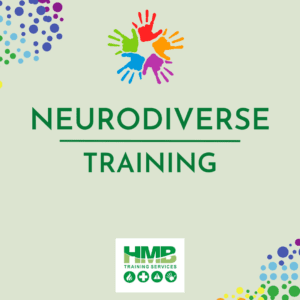Autism, or Autism Spectrum Disorder (ASD), is a developmental condition that affects how a person perceives the world and interacts with others. It helps massively knowing the ways to help an autistic colleague. It is referred to as a “spectrum” because the characteristics of autism can vary widely from person to person. Some individuals may need significant support in daily life, while others may live independently.
Below is a summary of the main characteristics of autism:
Communication and Social Interaction Challenges
Many autistic individuals may find it difficult to interpret social cues, facial expressions, body language, and tone of voice. They might struggle with understanding jokes or sarcasm and may prefer direct and clear communication. Some may have difficulty initiating or maintaining conversations, while others may have advanced language skills but struggle with back-and-forth conversations.
Repetitive Behaviours and Routines
Autistic people often find comfort in routines and can become upset by changes. They may engage in repetitive behaviours, like pen tapping, rocking, leg twitching or repeating certain phrases (known as “stimming”), which can help manage stress or anxiety.
Sensory Sensitivities
Many people with autism experience heightened sensitivity to sensory inputs like bright lights, loud noises, strong smells, or certain textures. Alternatively, some may be less responsive to certain sensory stimuli.
Intense Focus and Interests
Autistic individuals may have deep, focused interests in specific topics or activities, sometimes called “special interests.” This intense focus can be a strength, particularly in fields that value attention to detail.
Cognitive Differences
Autistic individuals can have varied intellectual abilities. Some may have co-occurring conditions like intellectual disabilities, while others may have exceptional abilities in specific areas, such as mathematics, art, or memory.
Neurological Basis
Autism is a neurological condition, meaning it is related to the way the brain is wired and functions. It is typically present from early childhood, though it may not always be diagnosed until later in life, especially in cases of milder forms of autism or in females.
Strengths of Autistic Individuals
Many autistic people excel in areas that require attention to detail, logical thinking, and creativity. They may bring unique perspectives and problem-solving skills to work or social situations.
Autism is not a disease or something that needs to be “fixed”; rather, it’s a different way of experiencing and interacting with the world. With the right support, autistic individuals can thrive in a variety of environments, including workplaces.
What are the Struggles Autistic People have in the Workplace?
Holding down a job can come with it’s difficulties, and can be a massive struggle for some people with neurodiversity. Some difficulties may include; holding conversations, dealing with change, environment sensory’s, anxieties and overwhelm.
Understanding Social Cues
Some colleagues may find it challenging to interpret the body language, facial expressions, or tone of an autistic co-worker. They might misread an autistic person’s communication style, perceiving them as distant, uninterested, or even blunt.
Many autistic people may find it difficult to pick up on social cues, such as when it’s appropriate to end a conversation or when sarcasm is being used. This can lead to misunderstandings or feelings of isolation in social or team settings.
Communication Styles
Colleagues may expect certain communication norms, such as small talk, which autistic individuals might find uncomfortable or unnecessary. This mismatch can create tension or make collaboration challenging.
Autistic people often prefer direct, clear, and literal communication, which can sometimes be seen as abrupt or lacking warmth. They may also struggle with unwritten workplace rules, such as the expected tone or length of emails.
Sensory Overload
Colleagues may not understand why an autistic co-worker needs accommodations, like working in a quieter space or wearing noise-cancelling headphones, which might be seen as antisocial or disengaged.
Autistic people can be hypersensitive to noise, bright lights, and other environmental factors. Open-plan offices, constant background chatter, or flickering lights can be overwhelming and affect their ability to focus or remain calm.
Adapting to Change
Colleagues who handle change easily may find it hard to understand why an autistic co-worker struggles with last-minute schedule changes, new routines, or sudden team restructuring.
Many autistic people find comfort in predictability and routine. Sudden changes in their work environment, such as shifting deadlines or new processes, can be particularly stressful and lead to anxiety or reduced productivity.
Group Collaboration
Teamwork, brainstorming, and fast-paced discussions might be second nature to some colleagues, but they may feel frustrated if an autistic team member doesn’t engage in group activities in the same way.
Some autistic individuals may feel uncomfortable in group settings, particularly if there’s pressure to contribute immediately or navigate the social dynamics of a team. They may prefer working independently or with clearly defined tasks rather than in free-flowing group discussions.
Managing Anxiety or Burnout
Colleagues might not always be aware of the mental or emotional strain that workplace dynamics are having on an autistic co-worker. They might misinterpret signs of burnout or withdrawal as a lack of commitment or enthusiasm.
The workplace can be a high-stress environment, and for many autistic individuals, managing the sensory, social, and communication demands can be exhausting. This can lead to anxiety, burnout, or the need for frequent breaks to recuperate.
Unclear Expectations
Managers or co-workers might assume that everyone understands workplace expectations or project goals that haven’t been clearly communicated, leading to frustration when tasks aren’t completed as expected.
Autistic individuals often thrive with clear, specific instructions. Vague directions or assumptions about “what everyone knows” can cause confusion and lead to mistakes or delays.
Office Politics and Networking
Networking and office politics are often informal but important aspects of many workplaces. Colleagues may expect everyone to engage in these social dynamics, but an autistic individual might not participate in the same way.
Networking, office politics, and social hierarchies can be particularly confusing or unappealing for autistic individuals. They may not see the value in small talk or socialising outside of work, which can sometimes hinder career advancement or team cohesion.
By understanding these challenges, and learning the ways to help an autistic colleague in the workplace can better support both autistic employees and their colleagues, fostering a more inclusive and effective work environment.
What are the Ways to Help an Autistic Colleague
Supporting an autistic colleague requires awareness, understanding, and flexibility. Here are some practical ways to help create an inclusive and supportive environment for an autistic colleague:
Offer Clear Communication
Be Direct and Specific: Autistic individuals often prefer clear, straightforward communication. Avoid using vague or ambiguous language, sarcasm, or implied meanings. Make sure instructions and expectations are clear and detailed.
Provide Written Communication: Whenever possible, complement verbal instructions with written versions. This helps reinforce clarity and provides a reference point if your colleague needs to review the information later.
Respect Their Need for Routine
Minimise Last-Minute Changes: Sudden changes to schedules, tasks, or routines can be particularly stressful for autistic individuals. Whenever possible, give advance notice of changes, and explain them clearly.
Be Consistent: Ensure that recurring tasks or meetings follow a consistent schedule to create a sense of predictability, which can help your colleague feel more comfortable and confident.
Create a Sensory-Friendly Environment
Provide Quiet Spaces: If your workplace has an open office layout, consider offering access to quieter areas where sensory overload (e.g., noise, bright lights) can be minimised.
Be Mindful of Sensory Sensitivities: Many autistic individuals are sensitive to certain sensory inputs. If your colleague has mentioned specific triggers (e.g., bright lights, strong smells), try to accommodate their preferences, such as by lowering the lighting or avoiding wearing strong perfumes.
Support Social Interactions
Respect Social Boundaries: Some autistic individuals may prefer less social interaction or may not engage in office small talk. Respect their preferences and avoid forcing social situations that may cause discomfort.
Encourage Inclusion in Team Activities: If your colleague is interested, find ways to include them in social events or team-building activities, but allow them to participate in a way that feels comfortable to them.
Offer Flexible Working Options
Flexible Hours: Consider offering flexible working hours or remote working opportunities if your colleague needs a quieter space or more control over their environment.
Breaks for Recharging: Allow your colleague to take regular breaks to manage sensory overload or stress, especially during high-pressure situations.
Provide Feedback and Support
Constructive Feedback: Autistic individuals may not always pick up on subtle hints or non-verbal cues, so if feedback is needed, be direct but kind. Provide constructive criticism in a straightforward and supportive manner, and give clear examples.
Offer Support without Judgment: Be empathetic and supportive if your colleague expresses challenges or difficulties. Avoid making assumptions about their abilities or needs, and offer help when appropriate.
Tailor Training and Development
Provide Structured Training: Autistic employees often thrive in structured environments. When introducing new tasks or responsibilities, break them down into clear, manageable steps with explicit instructions.
Offer Continuous Learning Opportunities: Provide access to resources or training tailored to their needs, which can help them develop skills or cope with challenges they may face in the workplace.
Be Aware of Non-Verbal Communication
Pay Attention to Non-Verbal Signs: Some autistic individuals may not be comfortable expressing discomfort verbally. Be mindful of non-verbal cues, like body language or facial expressions, which may indicate stress or discomfort.
Respect Stimming: Some autistic people engage in repetitive behaviours known as stimming (e.g., hand-flapping, tapping). These behaviours can help them self-regulate and manage stress, so it’s important not to judge or discourage them.
Encourage Individual Strengths
Recognise and Utilise Their Skills: Autistic individuals often have specific strengths, such as attention to detail, creative problem-solving, or expertise in specialised areas. Encourage them to apply these strengths to projects or tasks where they can excel.
Value Their Input: Autistic individuals may offer unique perspectives and innovative ideas. Create an inclusive space where their contributions are valued and where they feel comfortable sharing their thoughts.
Promote an Inclusive Culture
Educate the Team: Raise awareness about neurodiversity in the workplace. Training on neurodiversity and autism can help colleagues better understand and support autistic individuals, creating a more inclusive work environment.
Model Acceptance and Flexibility: Lead by example by showing acceptance of diverse working styles and needs. Encourage an open dialogue where colleagues can express their needs and be heard.
By adopting these strategies, you can help your autistic colleague feel more comfortable, valued, and empowered to contribute their best to the workplace.
Our Neurodiversity Training – Ways to Help an Autistic Colleague
Neurodiversity Training for the Workplace for managers, HR personnel and colleagues. The session aims to increase awareness of neurodiversity in the workplace and allow attendees the opportunity to discuss workplace specific circumstances, develop strategies to support a neurodivergent workforce and identify the next steps for their organisation.

The course includes:
- Overview of Neurodiversity
- Why neurodiversity is important
- Associated neurodevelopmental conditions
- Neurodiversity, mental health and wellbeing
- Overview of Autism Spectrum Conditions
- Communication differences
- Strategies to ensure effective communication
- Cognitive Differences in autism
- Strengths and challenges
- Sensory Differences
- Breakdown of senses
- Hyper/Hypo sensitivity
- Environmental considerations
- Neurodiversity best practice in the workplace
- Examples of reasonable adjustments:
- Recruitment processes
- In the workplace
- Examples of reasonable adjustments:
Our Neurodiversity Training is fully interactive with lots of practical games and tasks to perform, including a lot of opportunities for discussions to embed learning and to show ways to help an autistic colleague
More information click here; https://www.hmbtrainingservices.co.uk/latest-news/offer/neurodiversity-training-for-the-workplace
Or you can call us on 01543 4533338



